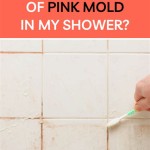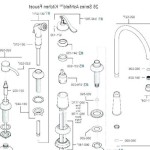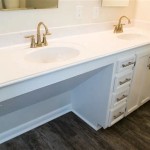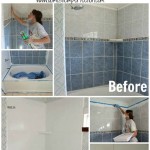Why Does My New Bathroom Smell Musty All Of A Sudden?
A musty odor in a newly renovated or constructed bathroom is a disconcerting issue for many homeowners. The expectation is that a new bathroom will present a fresh and clean environment. When a musty smell appears unexpectedly, it signifies an underlying problem that requires immediate attention. Ignoring the smell can lead to more significant structural damage and potential health concerns. Several factors can contribute to the development of musty odors in bathrooms, even new ones. This article will explore the primary causes and provide a comprehensive understanding of the issue.
Inadequate Ventilation and Moisture Buildup
One of the most frequent culprits behind musty smells in bathrooms is inadequate ventilation. Bathrooms inherently generate a significant amount of moisture through activities like showering, bathing, and even handwashing. Inadequate ventilation prevents this moisture from escaping, creating an environment conducive to mold and mildew growth. Mold and mildew are microorganisms that thrive in damp, dark spaces, and their presence is often signaled by a characteristic musty odor. Even a newly installed bathroom that is not adequately ventilated is susceptible to this problem.
Building codes typically mandate the installation of exhaust fans in bathrooms, especially those lacking windows. An exhaust fan is designed to remove humid air from the bathroom, preventing moisture from accumulating on surfaces such as walls, ceilings, and floors. If the exhaust fan is undersized for the bathroom's square footage or is not functioning correctly, it will fail to remove moisture efficiently. This can lead to the gradual development of mold and mildew colonies in hidden areas, such as behind tiles, under flooring, or within wall cavities.
To ensure proper ventilation, it's essential to verify that the exhaust fan is appropriately sized for the bathroom. The Home Ventilating Institute (HVI) provides guidelines for determining the appropriate fan capacity, measured in cubic feet per minute (CFM), based on the bathroom's dimensions. In addition to proper sizing, the exhaust fan's ductwork must be correctly installed and vented to the exterior of the house. Ductwork that terminates in the attic or crawl space will only redistribute moisture, exacerbating the problem. Furthermore, the exhaust fan should be used during and after showering or bathing for a minimum of 20 minutes to effectively remove the moisture-laden air.
Beyond mechanical ventilation, natural ventilation can also play a role in managing moisture levels. If the bathroom has a window, opening it after showering or bathing can help to dissipate moisture. However, relying solely on natural ventilation may not be sufficient, especially in humid climates or during periods of high humidity. The combination of a properly functioning exhaust fan and occasional natural ventilation provides the most effective approach to controlling moisture buildup and preventing musty odors.
Furthermore, even with adequate ventilation, certain habits can contribute to moisture buildup. For example, leaving wet towels and bath mats on the floor or failing to wipe down shower walls and doors after use can create damp conditions that promote mold and mildew growth. Adopting simple practices like hanging towels to dry and wiping down surfaces can significantly reduce moisture levels and prevent the development of musty odors.
Water Leaks and Hidden Moisture Sources
Another significant source of musty odors in bathrooms, especially new ones, is the presence of water leaks. Even small, seemingly insignificant leaks can create persistently damp conditions that foster mold and mildew growth. These leaks can originate from various sources, including plumbing fixtures, pipes, and even the building's exterior. Identifying and addressing water leaks promptly is crucial to preventing long-term damage and eliminating the musty smell.
Plumbing leaks are a common culprit in bathrooms. Leaks can occur at the connections to the sink, toilet, shower, or bathtub. These leaks may be obvious, such as a dripping faucet or a puddle of water under the sink. However, leaks can also be hidden behind walls or under flooring, making them more difficult to detect. Regular inspection of plumbing fixtures and connections can help to identify leaks early on. Look for signs of water stains, discoloration, or dampness around plumbing fixtures, as these can indicate the presence of a leak.
In addition to plumbing leaks, water can also enter the bathroom from the building's exterior. Cracks in exterior walls or around windows and doors can allow rainwater to penetrate the building envelope and seep into the bathroom. Similarly, roof leaks can allow water to trickle down walls and into the bathroom. These types of leaks can be particularly challenging to detect, as the source of the water may be far from the point where the musty smell is most noticeable. A thorough inspection of the building's exterior and roof can help to identify potential entry points for water.
Furthermore, improper installation of tiles or shower enclosures can create opportunities for water to penetrate walls and floors. If the grout or sealant is cracked or missing, water can seep behind the tiles and into the underlying structure. Over time, this can lead to the development of mold and mildew, which will manifest as a musty odor. Ensuring that tiles and shower enclosures are properly installed and maintained is essential for preventing water intrusion.
Once a water leak is identified, it is crucial to address it promptly. Small leaks can often be repaired relatively easily, such as tightening a loose connection or replacing a worn-out washer. However, more significant leaks may require the attention of a professional plumber. Regardless of the size of the leak, it is essential to ensure that the underlying structure is thoroughly dried out after the repair has been made. This may involve removing wet materials, such as drywall or insulation, and using dehumidifiers and fans to accelerate the drying process. Failure to properly dry out the affected area can allow mold and mildew to continue to grow, even after the leak has been repaired.
Building Materials and Construction Defects
The materials used in the construction or renovation of a bathroom can also contribute to musty odors, particularly if these materials were not properly dried or treated before installation. Certain building materials are inherently more susceptible to mold and mildew growth, and if these materials are exposed to moisture, they can quickly become a source of musty odors. In addition, construction defects can create conditions that promote moisture accumulation, leading to mold and mildew growth.
One common issue is the use of improperly dried lumber or plywood in the bathroom's framing or subflooring. If these materials were exposed to rain or humidity during construction and were not allowed to dry completely before being enclosed within walls or floors, they can retain moisture and become a breeding ground for mold and mildew. This is especially true in areas with high humidity, where the drying process can take significantly longer.
Another potential problem is the use of porous materials, such as certain types of drywall or insulation, in areas that are prone to moisture exposure. These materials can absorb moisture like a sponge, providing a perfect environment for mold and mildew growth. When these materials are used in bathrooms, they should be treated with a mold-resistant coating or replaced with materials that are less susceptible to moisture damage.
Construction defects can also contribute to moisture accumulation in bathrooms. For example, improperly installed vapor barriers can trap moisture within walls, creating a humid environment that promotes mold and mildew growth. Similarly, inadequate insulation can lead to condensation on cold surfaces, such as pipes or exterior walls, which can then contribute to moisture buildup. Ensuring that the bathroom is properly insulated and that vapor barriers are correctly installed is essential for preventing moisture problems.
Furthermore, improper grading around the foundation of the house can allow water to seep into the bathroom through the floor or walls. If the ground slopes towards the house, rainwater can accumulate near the foundation and eventually find its way inside. Proper grading should ensure that water flows away from the house, preventing it from penetrating the building envelope.
Addressing these issues may require the expertise of a building contractor or inspector. They can assess the building's construction and identify any defects that may be contributing to moisture accumulation. They can also recommend appropriate repairs or modifications to prevent future problems. In some cases, it may be necessary to remove and replace affected building materials to eliminate the source of the musty odor.
In conclusion, a musty smell in a new bathroom can stem from various factors. Adequate ventilation, prompt leak detection and repair, and appropriate building material selection are vital in preventing this issue. Addressing these potential problems proactively and systematically can ensure a fresh and healthy bathroom environment.

Five Reasons Your Bathroom Smells Like A Sewer The Plumbette

Help My Bathroom Smells Musty What Should I Do Phyxter Home Services

Help My Bathroom Smells Musty What Should I Do Phyxter Home Services

New Bathroom Smells Musty Causes And Solutions

Why Does My Bathroom Smell Like Sewage Metro Flow Plumbing

Bathroom Smells Musty Causes And Solutions

Musty Smells In The House Finding Them And Getting Rid Of

New Bathroom Smells Musty Causes And Solutions

Why Is There A Bad Smell In My Bathroom M J Burt

Your Toilet Smells Like Rotten Eggs Mr Rooter
Related Posts







